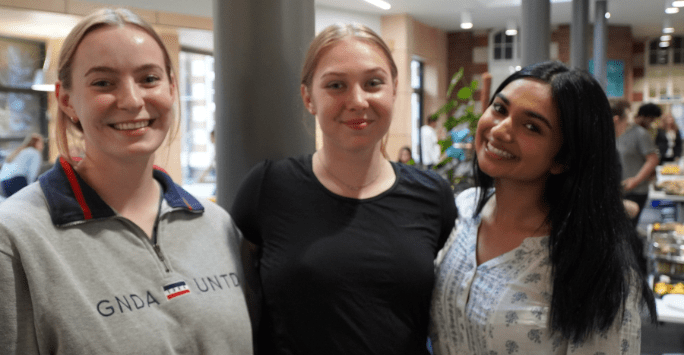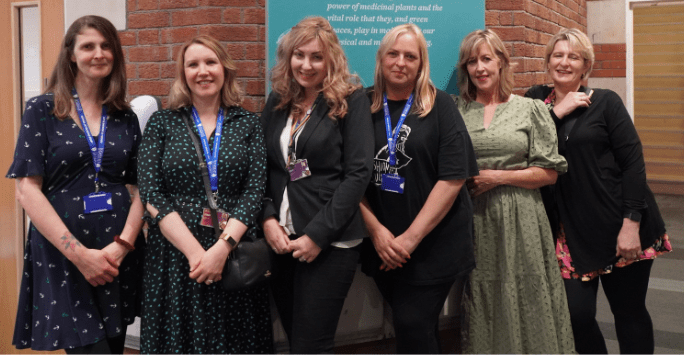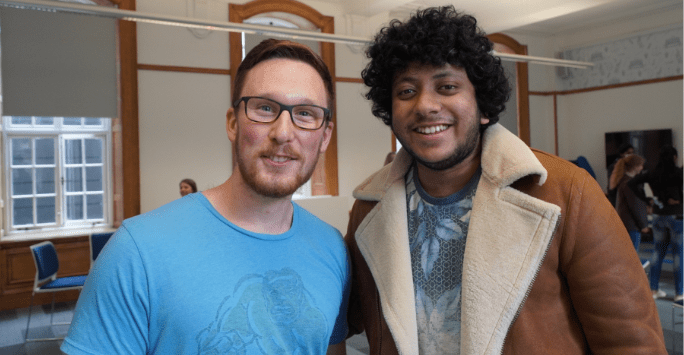
To mark Mental Health Awareness Week this week and this year’s theme of loneliness, we look into the many ways in which student doctors can build meaningful connections that combat a sense of isolation and lead to a happier, fuller and more productive University life.
Loneliness is something we can all experience from time to time and is a key driver for poor mental health. Research conducted by the Mental Health Foundation, hosts of Mental Health Awareness Week, has shown that loneliness has been exacerbated by the pandemic and the changes it has brought to our daily routines.
The School’s dedicated Wellbeing Team recognised this immediately and worked to adjust their services to support students during the various national lockdowns, online learning and social distancing.
Director of MBChB Wellbeing Service Alison Threlfall explains,
We knew maintaining wellbeing had never been more important and so immediately switched our wellbeing appointments to operate via Zoom calls and over the phone.
The availability of appointments was increased to include the addition of early morning and evening slots, which proved popular with students and continue to be offered. Appointments are still available at extended hours from 8.00 until 19.00 Monday to Thursday, and until 17.00 on Fridays.
The Wellbeing Academics and Wellbeing Advisors checked in with students they had been in contact with during the academic year during periods of lockdown and would reach out to any student self-isolating to offer support and a bit of company.
“During that time, there were also students who were unable to return home during term time or even for the holidays due to travel restrictions for example, so we would get in touch with them too and offer our support.”
 The Wellbeing team at the Wonderland event at Cedar House
The Wellbeing team at the Wonderland event at Cedar House
The Wellbeing Team has continued to expand its services, offering a variety of activities to support students with the specific challenges and experiences related to studying medicine.
Over the pandemic, they have significantly increased their support of students, going from 769 appointments in 19-20, to 1867 in 2020-21 and are on course for the projected figure of 2760 appointments in 2021-22!
They have teamed up with Mindfulness Coach Pip Bellis to offer Soothe Your Mind courses and guided meditations to help students work on their presence of mind and relaxation techniques.
Most recently, the team collaborated with LivPsych Society to run a Wellbeing Wonderland event at Cedar House, which gave students the opportunity to switch off from revision and take part in a series of activities, including a de-stress workshop by Be Free Campaign. The slide deck from the workshop is available on the Wellbeing area of the student intranet.
This charitable organisation was founded by Student Doctor Shantanu Kundu who has worked regularly with the Wellbeing Team to shape the services available to students at the School of Medicine.
The Be Free Campaign runs a number of initiatives to help support young people with their wellbeing and raise awareness of mental health. Shantanu has partnered with UCAS to produce resources on looking after your mental health during exam season or how to recognise the signs of mental health issues.
Shantanu says, “Being a medical student can be hard – we can feel pressure to compare ourselves to others but also feel as if we don't belong. This can be damaging to our mental health and often predisposes us to burnout.
It's important we take this time to step back and recognise our own individual signs that burnout might be occurring.
Reach out to people, look after your wellbeing and recognise that being a medical student isn't everything. It's a part of our life but something we need to balance effectively.”
He encourages students to reach out to the School Wellbeing team, who provide a safe space to talk through anything you may have on your mind, whether it be related to your studies or not. No topic is too big or too small.
We need to talk more about mental health and take it seriously as I personally believe that as COVID progresses and vanishes, this will emerge as the new pandemic.
"Make use of the School Wellbeing team, have a chat with them, they can help you with your academics, provide counselling, and point you in the right direction of different services.”
Shantanu also invites students to connect with and give back to others – one of the ways they can do this is through one of the volunteer opportunities and outreach projects running at the Be Free Campaign.
 Wellbeing ambasadors Jed and Shantanu
Wellbeing ambasadors Jed and Shantanu
Student Doctor and LivPsych Community Lead Jed Winstanley helped organise the Wellbeing Wonderland event. Part of the School’s Graduate Entry programme, after completing a degree in Biological Sciences and master's in Psychology (Conversion), he acknowledges the damage the feeling of imposter syndrome can do to your mental health.
“It goes without saying that medicine is a ridiculously competitive field to go into and I’d like to encourage you to stop whatever you are currently doing, congratulate yourself and remind yourself that you have made it this far. You have earned your place here. You deserve to be here. Don’t let your brain tell you otherwise.
Medicine is renowned for being a lifelong journey of learning, growth and development so it can be easy to get wrapped up in continually thinking ahead and how far there is still to go. Taking a step back and gently reminding yourself why you applied to study in the first place can ease any uncomfortable feelings.
My personal approach is to take things one day at a time and focus on the here and now.”
On the LivPsych website you can find a long list of recommended links to help you take control of your wellbeing, and support others in doing the same.
A big thank you to the Wellbeing Team, LivPsych and the Be Free Campaign for providing these resources and for facilitating conversations around mental health so that we know the signs to look out for and where to turn to when we are in need of support.
Discover more
- Browse resources on the Wellbeing section of the student intranet (link) or book an appointment via the School booking system (link).
- Take a look through the recommended wellbeing links on the LivPsych website (link) and get involved with the society through Liverpool Guid of Students (link).
- Head on over to the Be Free Campaign site (link) for resources and opportunities to get involved in projects and activities.